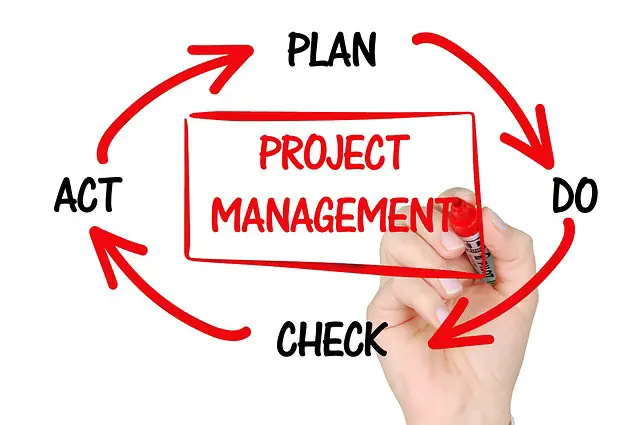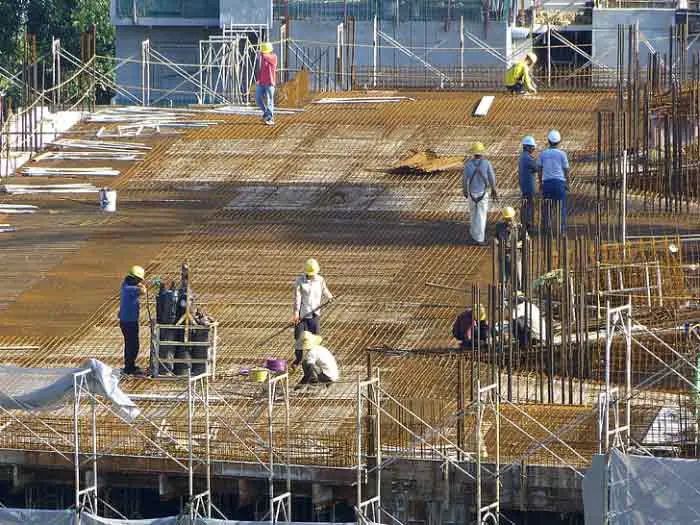Functions of Construction Management – Construction management is a science that studies and practices the business and technological aspects of the construction industry.
Construction management can also be understood as entrepreneurial capital that a construction consultant provides when advising and accompanying a development project.
The Construction Management Association of America “CMAA” states that there are seven main categories of responsibilities for a construction manager. This includes project management planning, price management, time management, quality management, contract management, security management, and professional practice.
Role of Construction Management
Construction management has various roles as the developer. In this case, based on the phases of implementation, the role of construction management is divided into four areas, namely:
Agency Construction Management “ACM”
In this phase, the construction manager acts as the coordinator of the “interface” (interface “between planning and execution as well as between contractors.
Extended Service Construction Manajemen “ESCM”
Another role that can be assigned to the contractor management is that of a contractor. This is done to avoid conflicting goals between contractors and management. In another form, the management moves at the request of the ESCM or the contractor.
Owner Construction Management “OCM”
In this case, the role of professional construction management was further developed by the client. The management is therefore also responsible for the project management carried out.
Guaranted Maximum Price Construction Management “GMPCM”
These consultants act more towards the general contractor than as representatives of the owner. Here the GMPCM consultant does not carry out the construction work, but is responsible to the client with regard to time, costs and quality. In this role, the management acts as the employer of the “subcontractors”.
Functions of Construction Management
As mentioned above, construction management is the process of implementing management functions on a project with existing resources effectively and efficiently in order to optimally achieve the project goals. Some of the other construction management functions are as follows:
Planning
The planning function of site management is to determine what to do and how to do it. This includes decisions about several decisions related to the construction process.
Organizing
This role relates to management’s efforts to determine the types of activities that need to be performed. The point is to make the tasks or activities easier for their subordinates as they are very well organized.
Staffing
This function includes the development and placement of the right people in the originally planned forms of work.
Directing
Another function of construction management is management or also called monitoring. This role includes encouraging motivation and guiding subordinates to carry out tasks as planned.
Controlling
The last function is the control, this function is useful to ensure that the planner can be realized with certainty. The control process always includes the following elements: planning is applied, deviations or deviations that occur are analyzed and the steps to be corrected are determined.
Objectives of Construction Management
A construction management system or team is required to manage projects in a time-saving manner, to realize project costs within the budget and to map the quality of the services provided.
The next goal of using a construction management system is so that the project costs are not burdened with double costs or overheads and profits, as with the main contractor system, which is responsible for subcontractors.
The inefficient levels are eliminated and the communication channels are shortened.
Construction Management System Tasks and Duties
The other tasks of the construction management at a glance include:
- Supervise the workflow in the field, whether it is the correct construction or not.
- Request a written progress report and an explanation of the work on each point from the contractor.
- The construction management has the right to reprimand and stop the work if it is not in accordance with the contract.
- Hold regular weekly and monthly meetings by inviting planning consultants, owner representatives, and contractors.
- Work directly with the owner or the owner’s representative to convey everything in the project.
- Send the work progress directly to the owner.
- Validate the material to be used whether it meets the contract specifications or not.
- Manage, direct and coordinate the execution of contractors’ work in terms of quality and time.
- Approve any contract changes proposed by the contractor.
- Review of contractors’ workshop drawings before starting work.
- Always review the methods of carrying out work by contractors to meet the requirements of “occupational health and safety, environment, quality and safety”.
- Provide written instructions on site when there is work to be done but not included in the contract to speed up the schedule.
Benefits of Construction Management
The advantages of construction management can be seen under several aspects:
The project costs
- The optimal cost of the project can be achieved because the construction management team was involved in the early stages of the planning
- The total cost of the project can be saved compared to conventional systems.
In terms of time
- With a fast track system, you don’t have to wait for the planning to complete
- The time required for planning can be longer
- The procurement of imported materials/equipment can be measured early, so there is less likelihood of delays
In terms of quality
- The quality is better guaranteed because the construction management team helps the contractors in terms of implementation methods, implementation, and quality control
- The quality and competence of specialist companies are more likely to be selected by the client with the support of the construction management team.
- Ways to improve the design are relatively numerous
- Regarding government programs
- An even distribution of employment opportunities with packages to new entrepreneurs from contractors can be realized.
- The project owner does not have to spend a lot of staff



